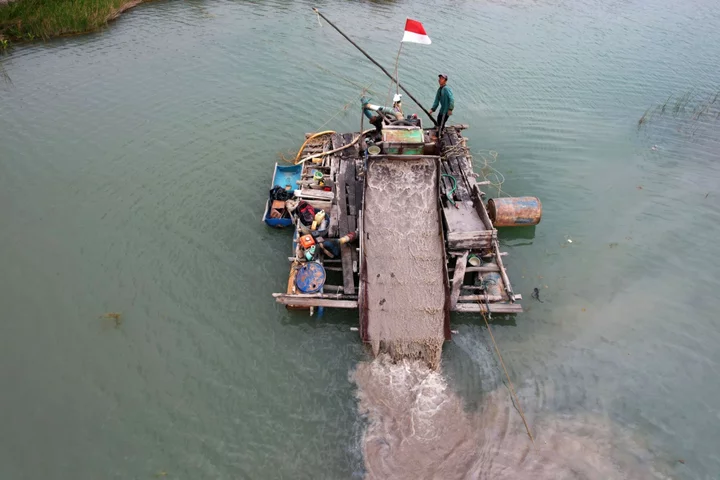Indonesia is rallying developing countries to follow its footsteps in deriving more wealth from their natural resources by climbing up the supply chain.
That may start with a July meeting between Indonesian President Joko Widodo, Brazilian leader Luiz Inacio Lula da Silva and Democratic Republic of Congo President Felix Tshisekedi to sign a deal to protect forests and make use of the resulting carbon credit. That could then be expanded to other African and Latin American countries that hold up to 70% of the world’s tropical forests.
“I see how in developed countries there are those who believe that if this is where we are, this is where we should stay — I say, no, it won’t be that way,” Indonesia’s Coordinating Maritime and Investment Minister Luhut Panjaitan said in an interview. “We want developing countries to not only export raw materials. There has to be added value for your country and for your people.”
Nickel is showing Indonesia a way to catapult itself into the ranks of higher-income economies, with the metal’s exports value surging tenfold in five years after the government forced companies to refine it onshore. Now Southeast Asia’s biggest economy plans to use that blueprint by processing everything from copper to fish, while urging other countries to follow.
Neighboring Philippines, the second-largest nickel supplier after Indonesia, is taking note by considering imposing fees on exports, while Zimbabwe introduced a ban on lithium exports to encourage local processing. Panjaitan took delegates from DR Congo, the top cobalt supplier, to the Weda Bay Industrial Park in eastern Indonesia to show what the country has done to get more value out of nickel.
Economic Model
It’s the latest move by Jokowi to position himself as a voice for the Global South, a group of developing countries across Asia, Latin America and Africa — most of which were colonized for their natural resources. He pledged to uphold the plight of emerging economies when he hosted the Group of 20 summit last year, while shunning the economic models set out by the US and European nations.
“We don’t want another country telling us what to do,” Panjaitan spoke at his office in Jakarta on Tuesday.
Indonesia is also stepping up the labor and environmental standards at its smelters to broaden the market appeal of its nickel. The government only allows facilities to use tailing dams or dry-stacking, while issuing no permits for deep-sea tailing. It is sending teams to visit each facility across the archipelago to ensure they comply with the rules, giving them only one warning for any infractions found.
“We won’t hesitate to shut them down if they fail to comply after the first warning,” Panjaitan said.
Author: Eko Listiyorini, Norman Harsono and Faris Mokhtar

